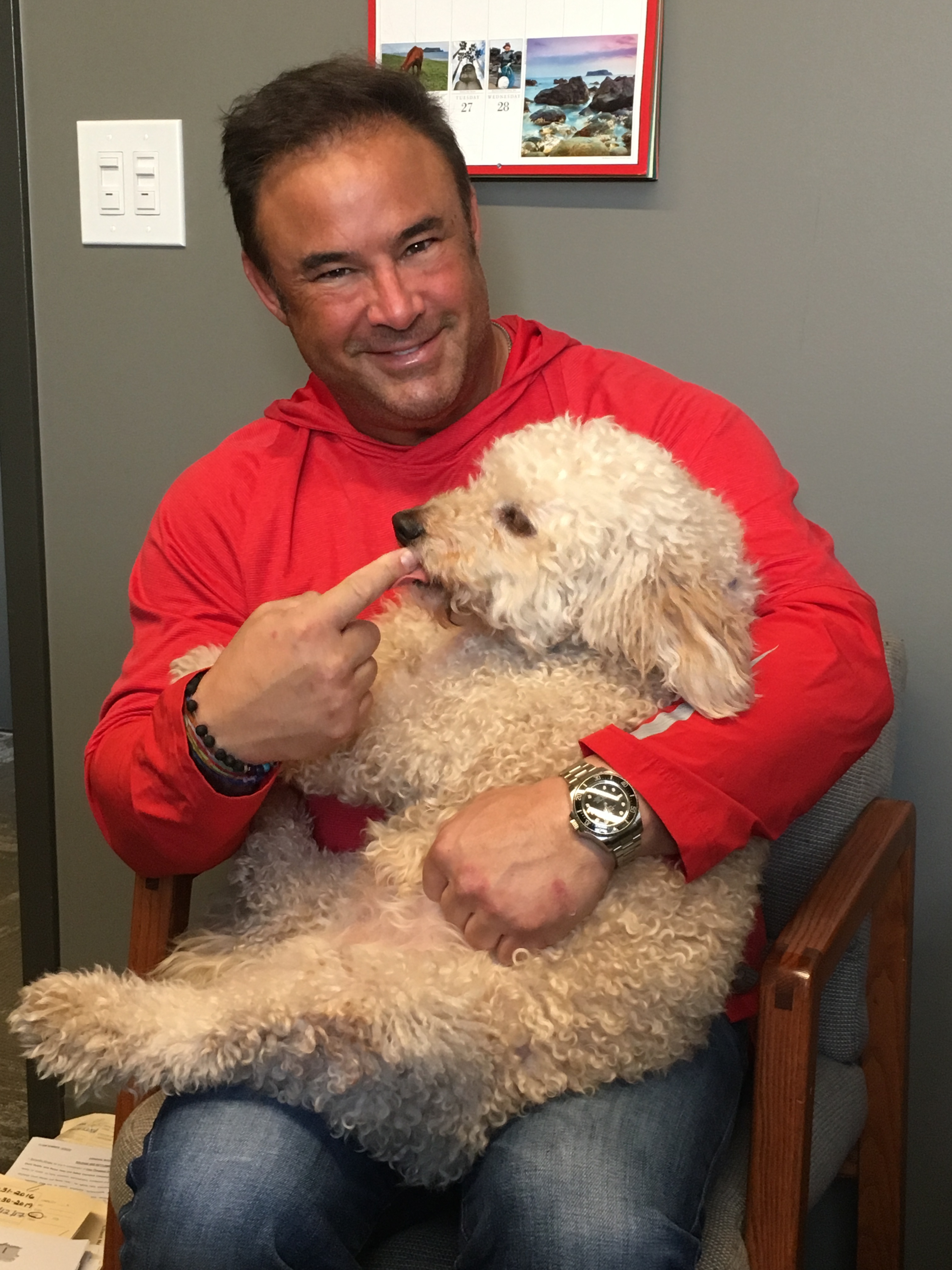It’s pretty obvious that we’re big dog fans at Schulze Law. Our Schulze Law mascot, Brady, is a beloved member of our team. We’re not alone… in the United States, over 36% of households own at least one dog. Our pets are like family and every animal enthusiast understands the special bond, deep connection and unconditional love that exists between a pet and their owner. To the animal lovers of the world, it is a relationship we can’t imagine life without. Pets manage to bring so much happiness and joy into our lives. They make us smile and laugh, comfort us when we’re sad or sick, and are always there for us no matter what. Dogs can be our best friends. But sometimes, our best friends bite.
In fact, dog bite statistics are alarming: According to the CDC, there are approximately 4.5 million dog bites every year in the US. Nearly one out of every five bites will become infected; around 800,000 victims will seek medical attention, with more than 380,000 requiring emergency medical treatment. Children are the most common dog bite victims.
Dog bites are not often breed-specific. Rather, most are caused by poorly treated or trained dogs—regardless of their breed. Ultimately, pet owners are responsible for taking all necessary precautions to ensure the safety of others from their animals—just as drivers have a duty to operate their motor vehicle safely.
If you’ve been injured by a dog bit, call us today. As your dog bite lawyer, we will help you understand your options to hold the responsible party liable for injuries sustained during an unprovoked dog attack. We will get you the compensation you deserve.
According to the CDC:
How to Prevent Dog Bites
Do:
Always ask if it is okay to pet someone else’s dog before reaching out to pet the dog.
When approached by an unfamiliar dog, remain motionless (“be still like a tree”).
If a dog knocks you over, curl into a ball with your head tucked and your hands over your ears and neck.
Immediately let an adult know about any stray dogs or dogs that are behaving strangely.
Don’t:
Don’t approach an unfamiliar dog.
Don’t run from a dog.
Don’t panic or make loud noises.
Don’t disturb a dog that is sleeping, eating, or caring for puppies.
Don’t pet a dog without allowing it to see and sniff you first.
Don’t encourage your dog to play aggressively.
Don’t let small children play with a dog unsupervised.
Do not pet a dog without allowing it to see and sniff you first.
What to do if an unfamiliar dog approaches you and you do not want to interact with it:
Stop! Stay still and be calm.
Do not panic or make loud noises.
Avoid direct eye contact with the dog.
Say “No” or “Go Home” in a firm, deep voice.
Stand with the side of your body facing the dog. Facing a dog directly can appear aggressive to the dog. Instead, keep your body turned partially or completely to the side.
Slowly raise your hands to your neck, with your elbows in.
Wait for the dog to pass or slowly back away.
What to do if you are bitten or attacked by a dog:
Protect Yourself
Put your purse, bag, or jacket between you and the dog.
If you are knocked down, curl into a ball with your head tucked in and your hands over your ears and neck.
Wash Wounds with Soap and Water
When you get to a safe place, immediately wash wounds with soap and water.
Seek medical attention, especially:
For minor wounds:
Wash the wound thoroughly with soap and water.
Apply an antibiotic cream.
Cover the wound with a clean bandage.
See a healthcare provider if the wound becomes red, painful, warm, or swollen; if you develop a fever; or if the dog that bit you was acting strangely.
For deep wounds:
Apply pressure with a clean, dry cloth to stop the bleeding.
If you can’t stop the bleeding or you feel faint or weak, call 911 or your local emergency medical services immediately.
See a healthcare provider as soon as possible.
See a healthcare provider:
If the wound is serious (uncontrolled bleeding, loss of function, extreme pain, muscle or bone exposure, etc.).
If the wound becomes red, painful, warm, or swollen, or if you develop a fever. If you don’t know if the dog has been vaccinated against rabies.
If it has been more than 5 years since your last tetanus shot and the bite is deep.
Report the Bite
Because anyone who is bitten by a dog is at risk of getting rabies, consider contacting your local animal control agency or police department to report the incident, especially:
If you don’t know if the dog has been vaccinated against rabies.
If the dog appears sick or is acting strangely.
If possible, contact the owner and ensure the animal has a current rabies vaccination. You will need the rabies vaccine license number, name of the veterinarian who administered the vaccine, and the owner’s name, address, and phone number.
According to The Boston Public Health Commission, just like people, dogs are very good at communicating, but it takes practice for people to understand what a dog’s face and body are saying. Most people can recognize the signs of an aggressive dog that does not want to be touched (showing teeth, growling). Many dog bites occur because people miss the signs that a dog wants to be left alone, even if the dog doesn’t seem to be angry or upset. Some signs of a fearful or stressed dog that are easy to miss include:
- Head down, held low, or turned away.
- Tail low, tucked between legs, or wagging weakly.
- Mouth closed.
- Ears held back or held low.
- Hair raised on the back, especially near the tail.
- Being stiff or tense all over, freezing or trembling.
- “Whale-eyed,” showing the whites of the dog’s eye more than usual.
- Repeatedly barking with a short, high-pitched yaps or yelps.
- Acting restless.
- Trying to hide in or behind things.
- Quick yawning.
- Excessive drooling.
- Not interested in food.
- Shallow or rapid breathing.
- Nervous behavior, like licking their lips or scratching like they have an itch.
According to FindLaw.com:
Owner Liability for Dog/Animal Bites
In deciding who is responsible for an animal bite, the first thing to determine is: who is the owner of the animal? Some states enforce what is known as “strict liability” upon animal owners whose animals bite or attack others. Under the theory of strict liability, an owner is legally responsible (“liable”) for an animal bite, regardless of whether the owner did anything wrong with respect to protecting others from attack. Under this theory, even if the owner had no reason to know that his or her animal was dangerous, if the animal bit someone, the owner would still be liable. In other states, the owner of an animal can be held liable for the injuries it inflicts, provided that the owner knew (or had reason to know) that the animal had “dangerous propensities.” In other words, if an animal owner knows that his or her animal is dangerous and could cause injury to a person, the animal owner can be held liable for the animal’s harmful actions.
Determining whether an owner knew of an animal’s “dangerous propensities” can be difficult. The first question that often arises in making this determination is whether the owner needs to know of the particular animal’s potential for harm, or whether the owner only needs to know that type of animal is potentially harmful. For example, when a person has a pit bull as a pet, does that mean the owner knows or should know the pet will be harmful, just because, in general, pit bulls can be harmful?
Other Potential Responsible Parties
Animal owners are not the only people who can be held responsible for animal bites. Here are a few common scenarios where someone other than the animal’s owner could be held liable for an animal bite:
- Animal Keepers: Anyone who is responsible for the care or custody of an animal may be considered an owner or keeper and can be held responsible for an animal bite. Examples include kennels, a pound, or an animal sitter.
- Parents of Minors: Even if a person under 18 years of age owns the animal at issue, in many states an injured person can bring a legal claim against the minor’s parents, even if the parents had no direct involvement with the animal.
- Property Owners: A property owner can be liable for injuries caused by an animal that the property owner allowed onto his or her property.
- Landlords: If an apartment landlord knew (or should have known) that a tenant owned a dangerous animal, the landlord may also be liable for animal bite injuries.
According to AllLaw.com:
Massachusetts’s Dog Bite Statute
Massachusetts has a specific written law, or statute, that covers dog bite injuries. It appears in Chapter 140, Section 155 of the Massachusetts General Laws. This law holds a dog’s “owner or keeper” is liable if:
- the dog causes personal injury or property damage, and
- the injured person was not trespassing, committing another tort, or provoking the dog.
Massachusetts’s law applies not only to dog bites, but to any injury a dog causes to another person. In Massachusetts, a person has three years from the date of the injury to file a lawsuit.
“Strict Liability” Dog Bite Law in Massachusetts
Massachusetts is a “strict liability” dog bite state. In “strict liability” states, dog owners are still liable for injuries their dogs cause even if the owner had no prior knowledge that the dog would bite or cause injury.
What Damages Can You Recover?
Depending on the seriousness of injuries resulting from an animal attack, you may be entitled to recover for:
- Medical expenses
- Lost wages
- Pain and suffering
- Property damage.
In some instances, you may also be entitled to punitive damages, which are awarded to punish someone for his or her behavior. To justify an award of punitive damages, the wrongdoer’s conduct usually must be more than negligent, such as reckless or intentional conduct. For example, if a dog owner knew his dog was very dangerous, yet repeatedly allowed the dog to run free near a school, and the dog eventually attacked a child, a jury could conclude that punitive damages were appropriate.
Dog bite injuries can lead to significant compensation. Dog owners have a duty to protect others from their dogs. Call Brady and the team at Schulze Law to discuss your options.
http://www.bphc.org/
https://injury.findlaw.com/
https://www.cdc.gov/
https://www.alllaw.com/






